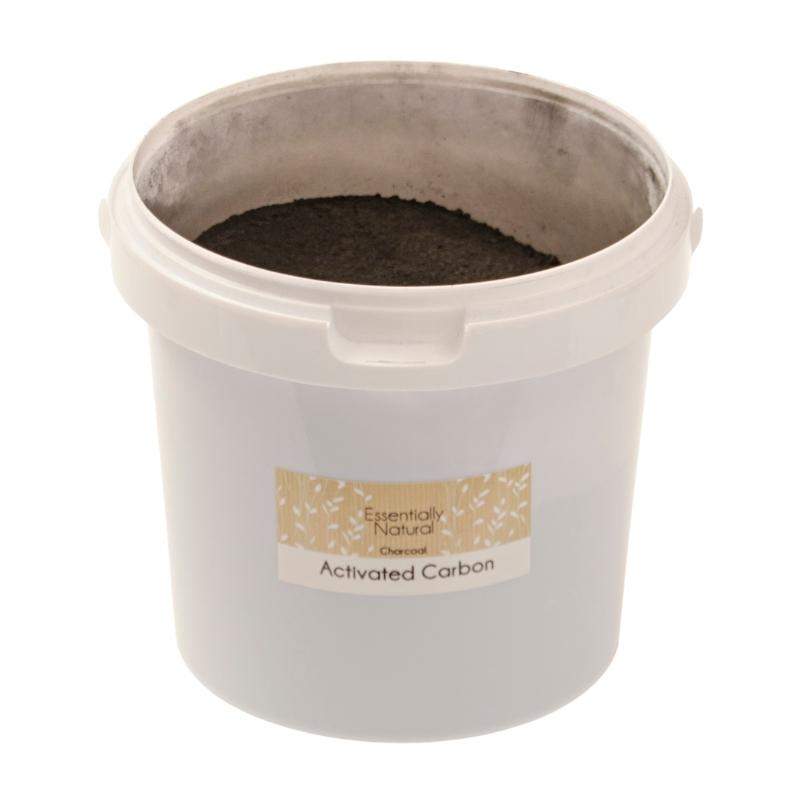
Uses Of Activated Charcoal
Juliette van der MeerWhat is Activated Charcoal?
Activated charcoal, unlike regular charcoal for the braai, is wood, nut shells or coconut shells exposed to ultra high temperatures and then treated with oxygen. This treatment makes the charcoal highly porous and able to adsorb toxins and odours from liquids and gases up to 1000x its weight.
Activated charcoal has been promoted as a great detoxer and has been added to everything from whitening toothpaste, to juices, face masks and even burger buns (somehow a black burger bun just doesn't whet my appetite though!). The reason for this is that activated charcoal is highly effective at adsorption (not absorption). Adsorption is when molecules of a liquid or gas bind to the surface of a solid particle, in this case the activated charcoal. This action enables activated charcoal to have a number of important uses. Let's find out more.
Medicinal Uses of Activated Charcoal
The number one use for activated charcoal is medicinal.
Charcoal and Poison
Activated charcoal is approved for use in emergency treatment of overdoses and poisonings. As long as the drug or poison has not entered the bloodstream via the gut yet, then activated charcoal can be administered to counteract the effects.
The toxic molecules bind to the activated charcoal as they move through the digestive tract and are then carried out as waste. It is imperative that the activated charcoal be taken as soon after the poison or drugs were ingested (so within 30-60 minutes or sooner) as possible, or else they may have already reached the gut and entered the bloodstream.
Charcoal and Bodily Cleansing
Activated charcoal can assist with extreme diarrhea, by preventing bacteria and drugs that can cause diarrhea from being absorbed into the body. It is thought that they are trapped by the porous texture of the activated charcoal and then carried out of the body as waste.
In cases of kidney disease and renal failure, patients taking activated charcoal experienced improved kidney function and reduced kidney inflammation and damage. More research is needed but studies show that activated charcoal may be able to assist in kidney health.
Activated charcoal can assist in reducing intestinal gas and bloating. It is believed that gases and liquids pass through the millions of microscopic holes in the activated charcoal, helping to neutralize them. Studies have shown that patients who took activated charcoal experienced reduced intestinal gas and bloating.
How much Activated Charcoal should you drink?
There isn't a prescribed way to take activated charcoal for gas but the European Food Safety Authority recommends taking at least 1g 30 minutes before and after meals.
Is Activated Charcoal Safe to consume?
Generally yes, but that does depend.
The body does not absorb activated charcoal and it is passed out with other waste. But don't take activated charcoal as a daily supplement, only when needed. Keep in mind that activated charcoal can interfere with digestion as any food or nutrient molecules can also bind to the charcoal. This can also inhibit any medications and supplements that have recently been taken, so if you are on any prescription medication please consult with your doctor before taking activated charcoal, or at the very least do not take the activated charcoal within a few hours of taking medication.
Practical Uses of Activated Charcoal
Like it does in the stomach, activated charcoal can adsorb and neutralize bacteria, chemicals and toxins in water, making it an ideal product for water filtration and purifying. You might have seen activated charcoal sticks or water filters around, and they do work. In fact, probably the most widely recognised water filter, the Brita water filter, uses activated charcoal in its filtration system.
Activated charcoal is a potent colourant, so if you need anything to be coloured black, this would be your answer. Black makes for a striking colour in soaps, body washes, scrubs and face masks.
Activated Charcoal In Skincare
While there is little scientific evidence of activated charcoal's use in cosmetics (it doesn't treat anything so there are very few studies on it), it can still be useful in skincare. Because of its binding properties, activated charcoal can potentially draw out dirt, chemicals, toxins and bacteria to the surface of the skin and make it easier for them to be cleaned away. Activated charcoal is also a mild exfoliant so it can be used in skin and facial scrubs and polishes.
Activated Charcoal in Oral Care
Charcoal has been used to clean and whiten teeth for ages and it is an indigenous tooth cleaning method in many parts of the world.
While there is anecdotal evidence to support activated charcoal's ability to whiten and clean teeth, no significant scientific studies support this and dentists do advise using activated charcoal sparingly as it is abrasive and can cause enamel erosion over time. Nevertheless, activated charcoal can be found in numerous teeth cleaning and whitening products. If you would like to try brushing your teeth with charcoal, here are two methods:
- Whiten teeth by dipping your toothbrush in the charcoal powder and gently brushing. Rinse well afterwards. Halloween hack: you can frighten the kids by brushing your teeth with charcoal and then flashing a smile!
- You can blend activated charcoal into your toothpaste and then use like normal. Make sure you brush gently.




























4 comments
Hi Mahoholi, I have used activated charcoal on my face with no issues whatsoever :) In a facial mask it is very nice
Hi Juliette
Would you advice to use the charcoal soap on face?
Hi Janay, I would recommend adding in 1% Geogard 221
Hi there,
for the mask, if I’d like to extend the shelf life in order to gift to some family,
how much preservative should I use?